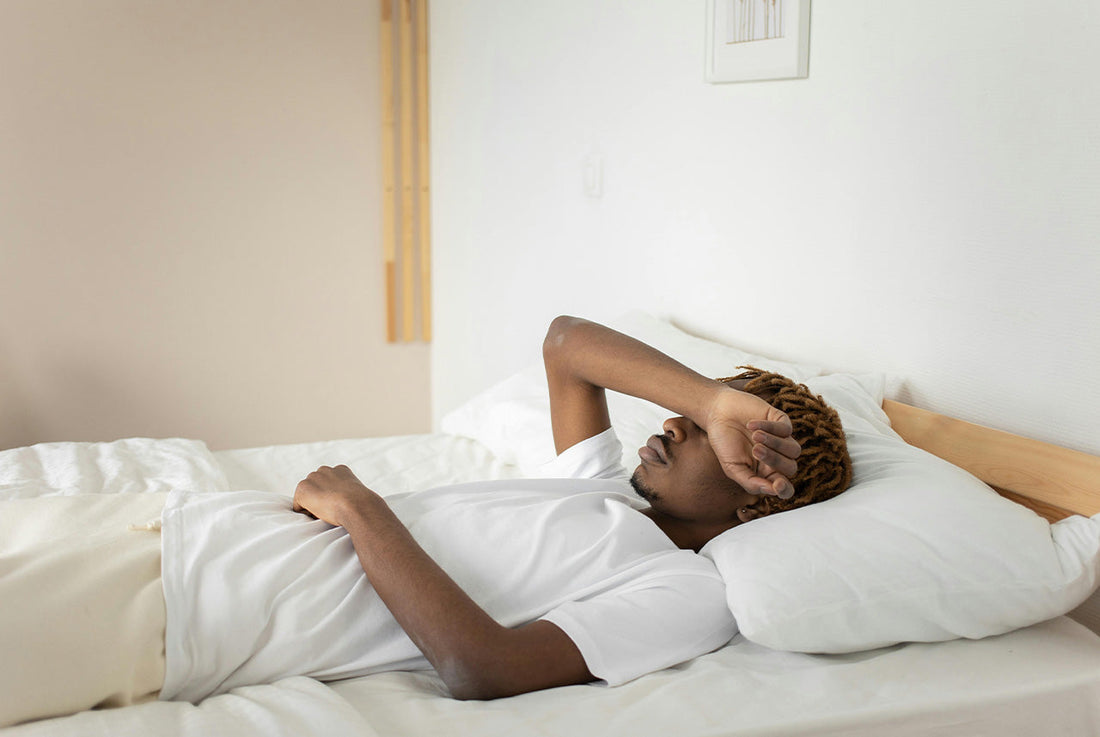
Is pain keeping you up at night? Consider these tips!
Share
Approximately one in five Australians are reported to be living with chronic pain[1]. If you are one of these people or know someone who suffers with pain, you are not alone. Pain is a universal experience, characterised by a deeply unpleasant sensory experience. Physiologically it can be considered natures alarm system, serving as a signal that something is wrong. It often signifies injury, illness or inflammation, and preserves and protects the body from further damage to tissues, allowing healing to occur. This complex system is designed to be a safeguard and can become disabling and debilitating over long periods of time, affecting all facets of everyday living including sleep, productivity and concentration, emotions and socialising.
The science of pain and sleep
As we now know, pain is a natural defence mechanism, aimed at self-preservation. It involves nerve pathways perceiving pain and the brain interpreting these signals. These nerves and their sensitivity to these signals can be influenced and modified by lifestyle factors such as sleep. In fact, it seems that there is a bidirectional relationship between sleep and pain, generating a cycle; poor sleep increases pain and pain leads to poor sleep.
The unpleasant effects of pain on sleep are familiar to most. Pain can disturb sleep, making it difficult to fall asleep, remain asleep or obtain quality sleep. Conversely, a lack of sleep or fragmented sleep causes a heightened neurological response to things like touch and pain. This is because poor sleep primes the nervous and immune system to enhance the perception of pain, increasing your brain’s sensitivity to it. This means it reduces the brains capacity to deal with pain and lowers your threshold or pain tolerance.
Hitting the sack
From a very general perspective, sleep allows our body to rest and heal from the day before. It is a necessary part of the healing process, so it is no surprise that a good snooze helps to reduce pain. For all the poor sleepers out there rest assured, there are fortunately a lot of other factors that can be addressed to support sleep.
1. Break a sweat
Whilst it may seem counterintuitive, movement can be helpful for pain suffers by supporting muscle tone, strength and mobility. Exercise can also help to release endorphins, the brain’s feel-good chemicals or “happy hormones” that help to improve mood and sleep, whilst reducing stress and blocking pain signals from reaching the brain. Start small with gentle stretching, short walks or maybe some swimming. This will help to tire you out and normalise a sleep routine.
2. Be kind to your mind
To drift off to sleep, our nervous system needs to shut off and relax. If you struggle with pain, you have a much more active nervous system. Meditation can help manage pain by helping the mind relax. It can also change the way you relate to unpleasant feelings[2]. Why not try box breathing, a four-step breathing pattern involving inhaling for a count of four, holding for a count of four and exhaling for a count of four. Repeat this cycle a few times until you feel a sense of calm flow through you.
3.Consider a rub down
A hands-on therapy like massage can upregulate the body’s production of neurohormones, which influence our well-being. Touch helps to elevate dopamine, contributing to a sense of joy and pleasure. The tender pressure applied to the skin supports circulation, enhancing relaxation and rest. You don’t have to see a massage therapist, if could be fun to try it yourself!
4.Consider supplementation
If you are seeking further support with sleep and pain, why not try Magnesium Night Plus. It is a delicious magnesium powder that containing a blend of California Poppy and Passionflower. California poppy is traditionally used in Western herbal medicine (WHM) to relieve pain, induce sleep and relieve restlessness. Passionflower is traditionally used in WHM to relieve sleeplessness, calm the mind and promote refreshing sleep. If a powder isn’t ideal for you, why not go for Magnesium Night – a convenient tablet with magnesium, Passionflower and Californian Poppy. For targeted pain relief why not opt for Pain Relief PEA Forte. PEA is an analgesic that relieves symptoms of mild arthritis and mild osteoarthritis, and reduces mild joint soreness, and mild nerve pain.
So next time you’re in pain and can’t sleep, don’t stay up counting sheep. We now know how important it is to consider the role of sleep quality and quantity in holistic pain management. Approaching both together might just be the way to help you sleep like a log and be out like a light.
[1] Australian Institute of Health and Welfare. 2020. Chronic pain in Australia, Summary. https://www.aihw.gov.au/reports/chronic-disease/chronic-pain-in-australia/summary
[2] Dunford, E., & DClinPsy, M. T. (2010). Relaxation and Mindfulness in Pain: A Review. Reviews in Pain, 4(1), 18–22.
